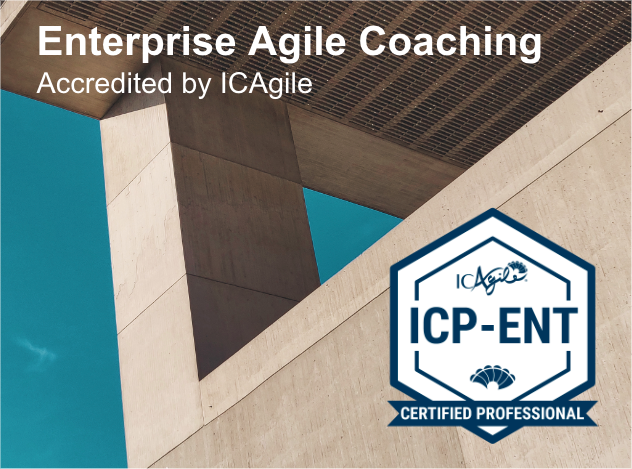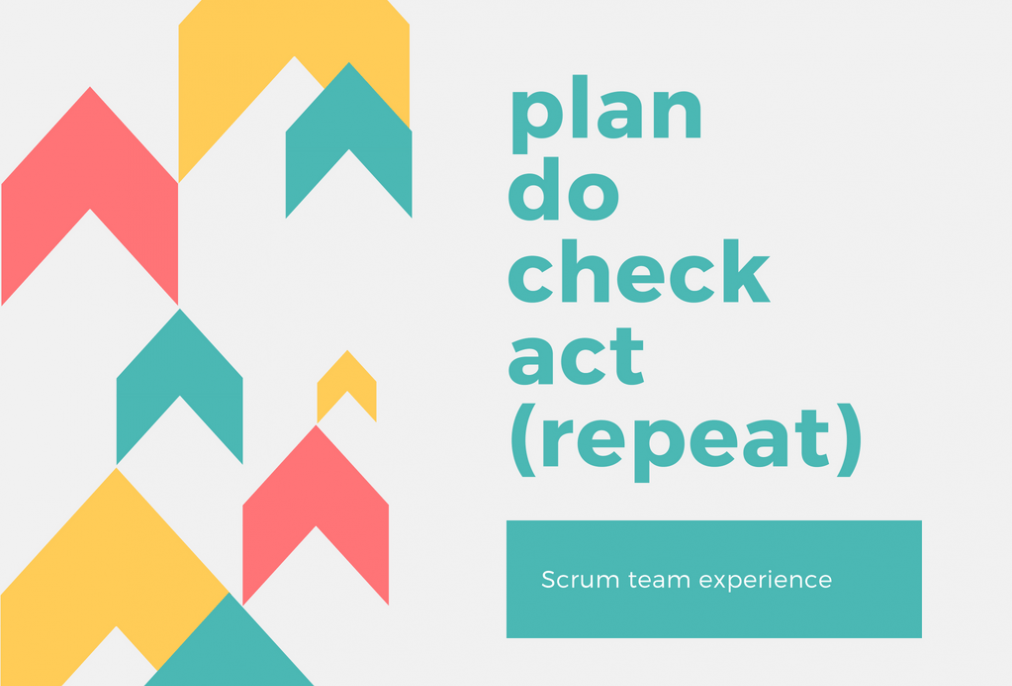Experience Agile collaboration with our expert facilitators. Deep industry knowledge. ICAgile approved training. Leaders in Agile Coaching with great feedback.
Enterprise Agile Coaching ICP-ENT Accredited by ICAgile

Focusing your change efforts on the team is not enough. It takes agile-style leadership, a learning culture, and team structures that enable collaboration. In this advanced course, you’ll learn the skills to enable agility at the enterprise level and build your Agile toolkit. For experienced Agile Coaches and Scrum Masters, leaders at any level, organisational development practitioners, and consultants. Accredited by ICAgile. Contact us for group rates.
Agile Fundamentals ICP Accredited by ICAgile

An essential course for project teams, leaders, coaches, and anyone who wants to learn the most commonly used Agile frameworks. Fix problems with late releases, lacklustre development teams, and plans that are destined for failure. Boost your maturity with Agile frameworks by learning the fundamentals of Scrum, Kanban, Lean Startup, Agile Project Management, and Continuous Delivery, and how to combine them. Experience the Agile mindset and principles that underpin all of the frameworks through teaching and facilitated group activities. Accredited by ICAgile. Contact us for group rates.
Influencing Culture Change Workshop Series

As a leader in your organisation, you’re responsible for preparing teams to deal with a complex and uncertain business environment. Implementing new structures, processes, and tools can help, to a point. Successful organisations create a culture of purpose that makes way for people to achieve your mission and objectives. This workshop enables you to see invisible cultural norms and pinpoint the beliefs and behaviours that hinder agility. This half-day workshop will be tailored to your specific needs after an initial consultation.
Scrum Team Coaching Experience

Organisations that develop complex products and services benefit from using Scrum’s iterative and incremental approach to meet customers’ needs quickly and with better quality than traditional approaches. This two-day workshop includes a mix of presentation, team activities, and a real-world case study to give participants hands-on experience of using Scrum to plan product development. This course is run as a closed company event and is ideal for a cross-section of development, product, and leadership roles. Participants will receive a certificate of completion from Future Focus Coaching.
We are recognised by ICAgile as leaders in online learning. Read our article for ICAgile’s publication on Medium.
